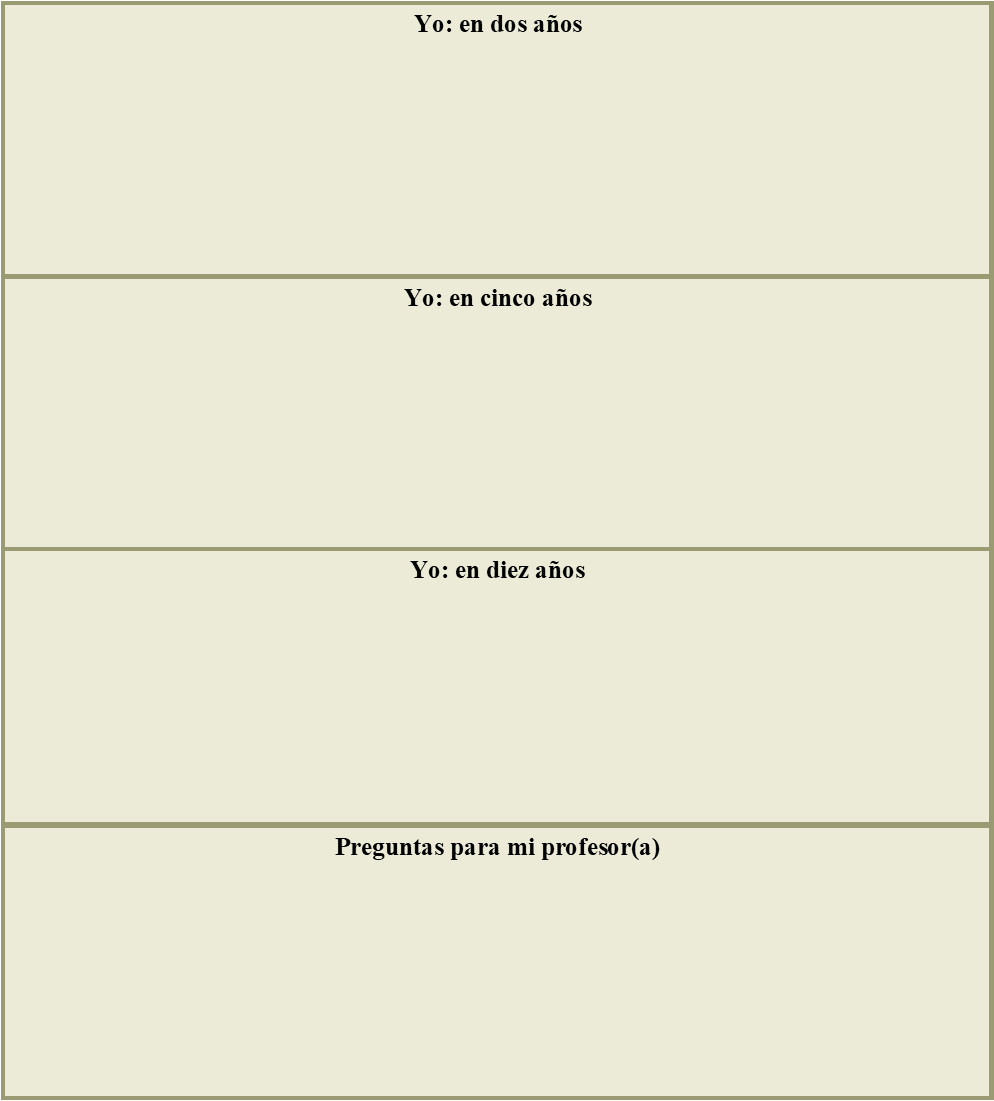10.6: The Future
- Page ID
- 44609
The future tense is used to discuss what will happen in the future.
It tends to be used for future events that are still fairly distant.
For the near future, the present tense or the ir a infinitivo expression are more commonly used.
Examples using el futuro:
· El año que viene, yo iré a Machu Picchu. ________
· El próximo mes, ustedes no asistirán a clases. ________
· En el futuro, tendrás muchos hijos. ________
· Este verano, mi esposo y yo viajaremos a Costa Rica. ________
We DO NOT use it to ask people to do something for us like the English phrase, “Will you…”. ¿Me ayudarás con la tarea? Instead, use quieres (do you want to) or podrías (would you be able to): ¿Quieres ayudarme con la tarea? -o- ¿Podrías ayudarme con la tarea?


While there are some irregulars, we do not have different endings for –AR, -ER, and –IR verbs.
To form el futuro, add these endings onto the end of your infinitive.
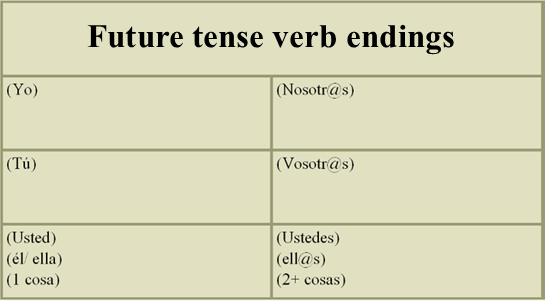

The future tense is also used as the equivalent to the English phrase, “I wonder....”
· ¿Vendrá el novio de Lupe? ________
· [Din Don] ¿Quién será? ________
On the same note, it is also used when discussing what is “probably” happening.
· Julia estará en México. ________
And, as always, there are several irregular verbs in el futuro. This group takes a new stem, but utilizes the same endings as regular verbs in the future. Amazingly, Ir, Ser, and estar are regular!
| Poner | Pondr- |
| Haber | Habr- |
| Salir | Saldr- |
| Hacer | Har- |
| Poder | Podr- |
| Tener | Tendr- |
| Querer | Querr- |
| Saber | Sabr- |
| Venir | Vendr- |
| Decir | Dir- |
| Valer* | Valdr- |
| Caber* | Cabr- |
Valer = to be worth/ to cost, Caber = to fit

Actividad 18
La adivina. You are sitting in the parlor room with your favorite fortune teller, and she sees the following events in your future. Fill in the blanks using the infinitives provided.
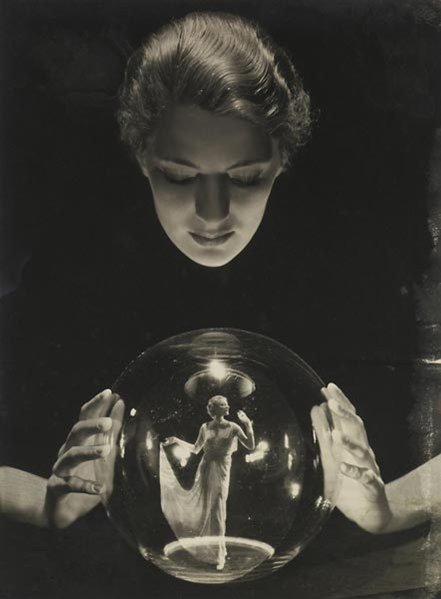
Señor(a), yo puedo ver claramente que…
Usted ________ el amor dentro de dos años. (encontrar)
Usted ________ a un país distante algún día. (viajar)
Si usted sigue estudiando para su carrera con esfuerzo, ________ mucho éxito. (tener)
Con el paso de cada año, usted ________ más sabi@ y compasiv@. (ser)
Sus amigos y familiares l@ ________ y ________ mucho durante toda la vida. (respetar, admirar)
Usted y su compañer@ de vida ________ felices para siempre. (vivir)
Actividad 19
Las galletas de la suerte. You were just hired at a Chinese restaurant with a large Spanish-speaking customer base. Your boss has asked you to write Spanish fortunes using the future tense to put inside their homemade fortune cookies. Video
1. ________
2.________
3.________
4.________
5.________

Actividad 20
La ciencia ficción. You have finally decided to write that science fiction novel you’ve been dreaming of all of these years. You know your character is going to fall into a lake that is used for secret government time travel research and he or she gets transported to the year 2222… now it’s time to imagine what the world will be like in approximately 200 years. Use el futuro to brainstorm a list of ideas for your futuristic world. Be prepared to share with a partner and the class.
________
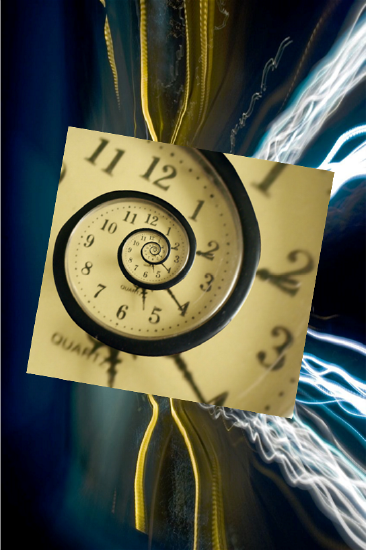
Actividad 21
¿Qué opinas? What’s your opinion? Check Sí or No depending upon whether you believe each of these statements will be true in the future. Be prepared to further develop your ideas with a partner, reflecting on the question of ¿Por qué sí, o por qué no?
1. Los robots conquistarán la humanidad y el mundo.
2. Podremos viajar en el tiempo.
3. Habrá más contaminación.
4. Lograremos la paz en el mundo.
5. Descubriremos vida inteligente.
6. Los extraterrestres nos invadirán.
7. Habrá turismo en la luna.
8. Salvaremos el planeta.
Actividad 22
M.A.S.H. O sea, M.A.C.C. en español. Let’s play this old childhood game!
Paso 1: Write three responses under each category.
Paso 2: Your partner will draw a spiral on a piece of paper. Tell them when to stop. Count the lines.
Paso 3: Use that number to count through your answers. When you land on an asnwer, cross it out until you are left with one response under each category.
Paso 4: Use your number to eliminate letters in the “MACC” to determine your future dwelling.
Paso 5: Use your results to write a sentence using el futuro about your “future life” for each category.
M.A.C.C.
1. masión 2. apartamento 3. chabola 4. casa
(vivir en)
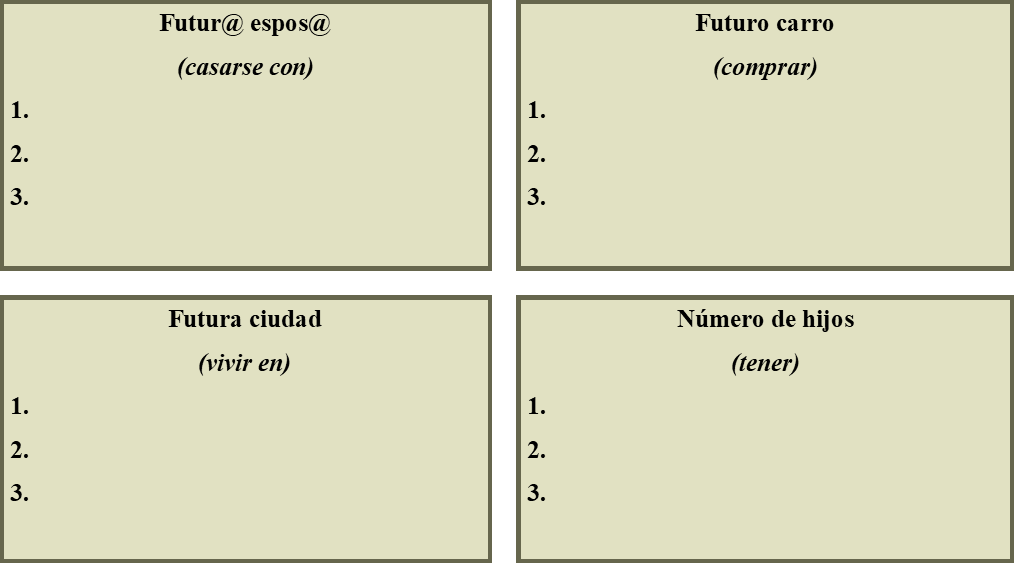
1. ¿En qué clase de vivienda vivirás?________
2. ¿Con quién te casarás?________
3. ¿En qué ciudad vivirás?________
4. ¿Qué carro comprarás? ________
5. ¿Cuántos hijos tendrás? ________
Actividad 23
Tú: en el futuro. You are applying for a scholarship and have been asked to imagine yourself two, five, and ten years from now. What will you be like? What will you do? What will you stop doing (dejar + de +infinitivo)? What will you achieve? Be prepared to discuss with a partner and as a class. Then, write questions to interview your instructor about his or her plans for the future.
